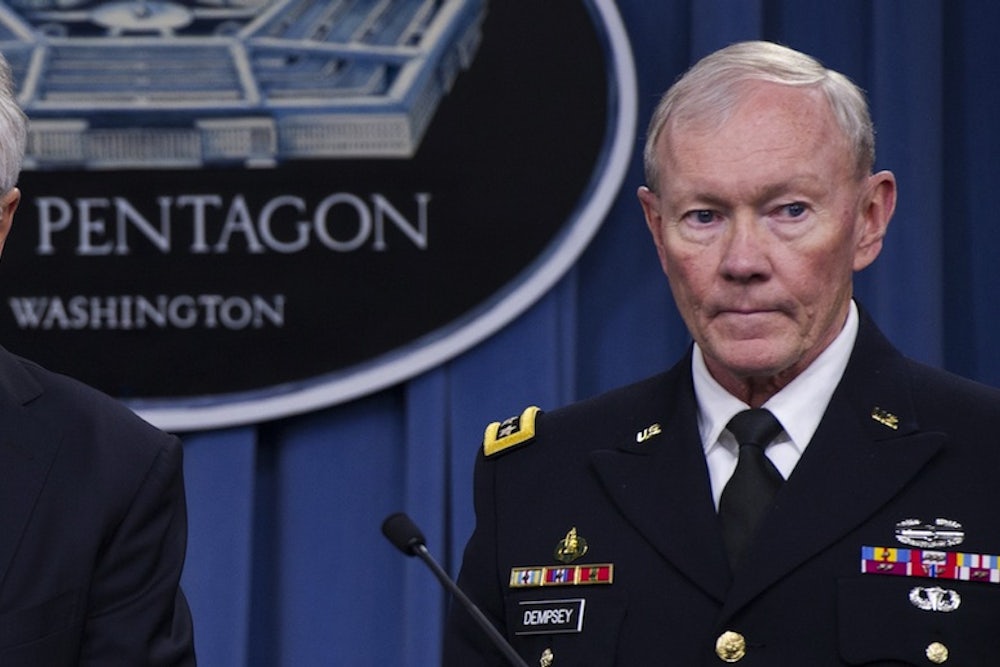With the U.S. exiting Afghanistan this year, the country will no longer be at war for the first time in more than a decade. To go along with this time of relative peace, Defense Secretary Chuck Hagel is proposing steep budget cuts that will reduce compensation and cut the size of the military. The New York Times reports today that Hagel’s budget would decrease Army troop levels to around 440,000-450,000 in the coming years, from a peak of 570,000 in the post-9/11 era.
The number of active duty military personnel has fallen from a high of nearly 3.5 million in 1968 to under 1.5 million, starting in the late 1990s:

One area that Hagel is particularly concerned with is compensation costs. He has been committed to reigning in the costs of military health care and pension spending, while also limiting pay raises. "Without serious attempts to achieve significant savings in this area, which consumes roughly half of the DoD budget and is increasing every year, we risk becoming an unbalanced force," Hagel said in November. The costs of military personnel, particularly health care costs, have grown dramatically in recent years and are taking up a larger share of the DOD's budget.
This chart from the Center for Strategic and Budgetary Assessments shows how much personnel costs (MILPERS) and health-care costs (DHP) have grown per service member over the past half a century:

Hagel is planning on outlining the budget in greater detail today, but the cuts will be in line with the Murray-Ryan budget deal, which capped spending in 2015 fiscal year to $496 billion. The sequester makes further cuts in the following years as well. This chart, also from the Center for Strategic and Budgetary Assessments, assumes that the sequester's caps remain in effect and war-related funding winds down from $74 billion in FY2014 to zero in FY2021. As you can see, the defense budget has grown substantially over the past few decades:

However, the economy has grown quickly as well, putting the defense budget as a percent of GDP on a downward path:

Hagel's plan has already faced pushback from Congress. The Chairman of the House Homeland Security Committee, Rep. Michael McCaul, decried the cuts, concerned that they would hinder military readiness. But Hagel is confident that the cuts will not hurt American security.
"We are repositioning to focus on the strategic challenges and opportunities that will define our future: new technologies, new centers of power and a world that is growing more volatile, more unpredictable and in some instances more threatening to the United States," he said at a press conference at the Pentagon today.
